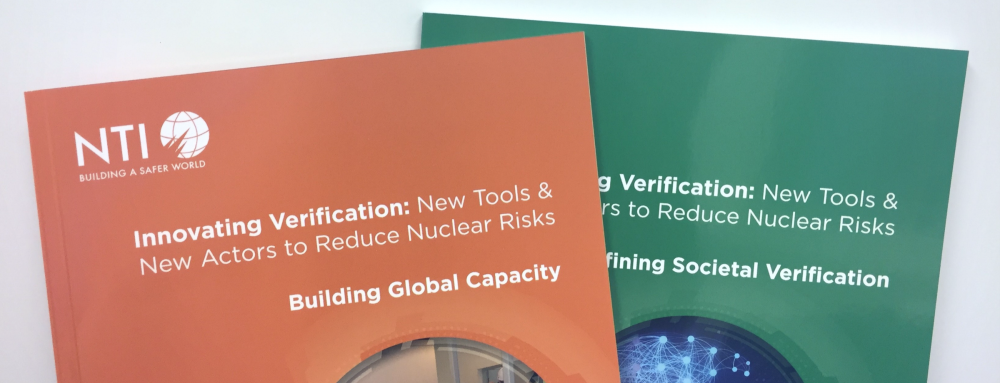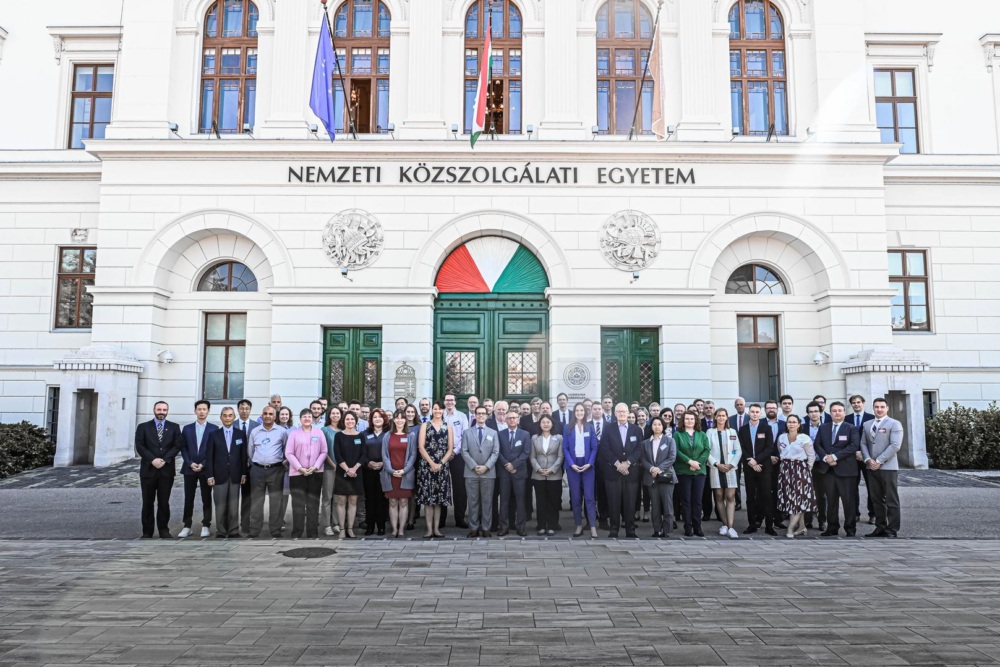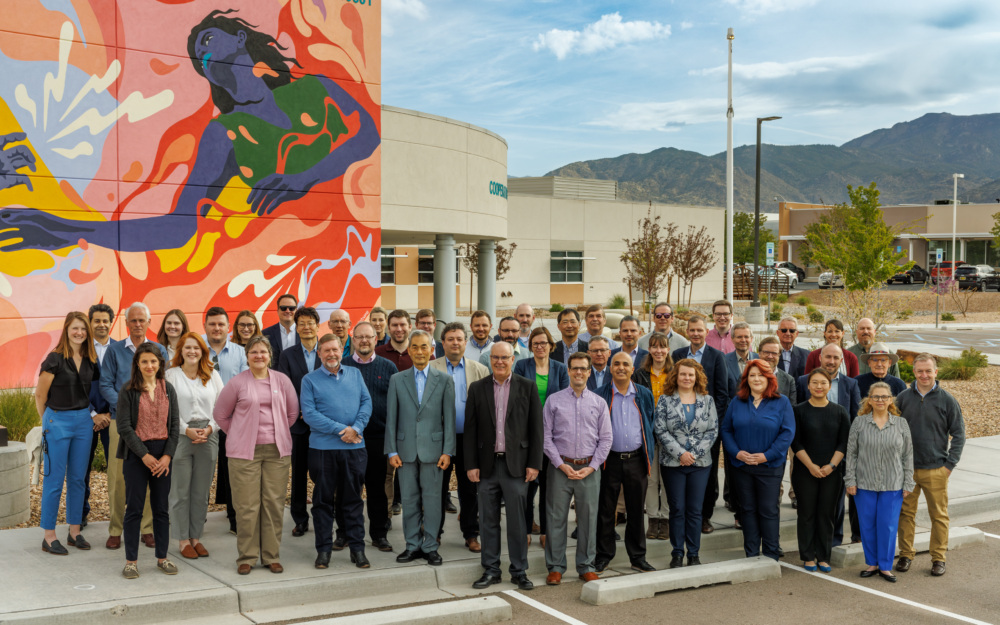
New Reports Offer Next Steps On Verification for Nuclear Threat Reduction

New Reports Offer Next Steps On Verification for Nuclear Threat Reduction
Find Urgent Need for International Collaboration, Technology Development and Greater Political Will
Washington, DC – Global verification efforts undertaken now will boost global confidence, build political will and address current nuclear non-proliferation and security challenges, in addition to building a toolkit for future arms reductions. The international community should develop capacity, investigate new technologies, and develop new solutions to current challenges. These are the key conclusions of a new report series from the Nuclear Threat Initiative (NTI), released today.
“Robust verification is in every country’s national security interest. Without it, we can never gain confidence that a state is complying with its commitments,” said former Senator Sam Nunn, NTI co-chairman and chief executive officer. “Innovative approaches can build confidence, transform thinking about what's possible to reduce nuclear risk and spark political momentum.”
“Bold steps toward a safer world may not be possible if developing verification capacity stays on the backburner,” said Joan Rohlfing, NTI president. “Verification can serve as the brake or the engine for future threat reduction measures. Capacity building is the key to success.”
Today, only a few countries—in particular, the United States and Russia—have the experience to meaningfully engage in monitoring and verification of nuclear threat reduction agreements. But solving regional nuclear challenges, like those in Iran and North Korea, will be more likely if neighbors can play a role and have confidence in verification. For example, if an agreement on a Middle East weapons of mass destruction-free zone was reached tomorrow, none of the countries in the region currently have the capacity to verify it.
Active steps on verification also can generate near-term benefits on non-proliferation and nuclear security. For instance, as countries prepare for future negotiations, the process of getting their own “house in order” can improve security.
Innovating Verification: New Tools & New Actors to Reduce Nuclear Risks is a four-report series outlining the recommendations from NTI’s Verification Pilot Project, which involved more than 40 technical and policy experts from around the world. They explored new approaches to verification that could prompt near-term progress on non-proliferation and nuclear security and enable future progress on arms reductions.
The project was undertaken in collaboration with senior leaders from the U.S. Departments of Defense, Energy, and State as well as the governments of Norway, Sweden, and the United Kingdom.
The reports outline recommendations governments around the world can undertake now:
- The Innovating Verification Overview includes a foreword by Sam Nunn and key project findings and recommendations across report topics.
- Verifying Baseline Declarations of Nuclear Warheads and Materials analyzes how baseline declarations can contribute to near- and long-term arms control and non-proliferation goals and explores how to verify them without compromising sensitive information.
- Redefining Societal Verification explores how advances in information technologies, big data, social media analytics, and commercial satellite imagery can supplement existing verification efforts by governments and increase contributions from outside experts.
- Building Global Capacity considers the value of expanded international participation in the verification of nuclear arms reductions and how this participation can increase confidence in nuclear threat reduction efforts among all states.
COMMON THEMES
The reports call for the international community to fundamentally rethink the design, development, and implementation of arms control verification. NTI highlighted the following themes common to all four reports:
- The international community must work to build and sustain a global cadre of verification experts by identifying core competencies, investing in national expertise and seeking opportunities to develop and participate in international verification efforts.
- Collaborative international work on verification should start now to develop new tools and approaches that can give policymakers confidence that nuclear reductions are verifiable.
- Future research and development should cross disciplines, communities, and nations to prevent stove-piping and innovate new solutions to difficult verification problems.
- A new framework is needed for sensitive information and states should reevaluate what information should be protected and what information could be shared openly or on a limited basis.
- No single verification approach is enough, and countries should work to build the strongest set of verification measures to detect or deter cheating.
- Verification is an area where all can contribute, and all states—both with and without nuclear weapons—have something to gain by expanding the circle of experts who can verify nuclear arms reductions.
The project builds on NTI's previous volume, Cultivating Confidence: Verification, Monitoring, and Enforcement for a World Free of Nuclear Weapons (Nuclear Threat Initiative, 2010), which outlined key issues that states need to address to ensure that nuclear weapons reductions can proceed in a safe and transparent manner.
ABOUT THE NUCLEAR THREAT INITIATIVE
The Nuclear Threat Initiative (NTI) is a non-profit, non-partisan organization with a mission to strengthen global security by reducing the risk of use and preventing the spread of nuclear, biological, and chemical weapons. Founded in 2001 by former U.S. Senator Sam Nunn and philanthropist Ted Turner, NTI is guided by a prestigious, international board of directors. Joan Rohlfing serves as president.
###
Stay Informed
Sign up for our newsletter to get the latest on nuclear and biological threats.
More News

Special “Innovating Verification” Briefing at the UN
The U.S. Department of State will host a special briefing by NTI on the "Innovating Verification" report series for attendees of the UN First Committee meeting.

IPNDV Convenes in Budapest for Working Meeting
The International Partnership for Nuclear Disarmament Verification (IPNDV) convened its most recent working meeting in Budapest, Hungary from September 4-8, 2023.

IPNDV Conducts Working Meeting in New Mexico
The International Partnership for Nuclear Disarmament Verification (IPNDV) convened its most recent working meeting in Albuquerque, New Mexico from April 24-28, 2023, hosted by Sandia National Laboratories.





